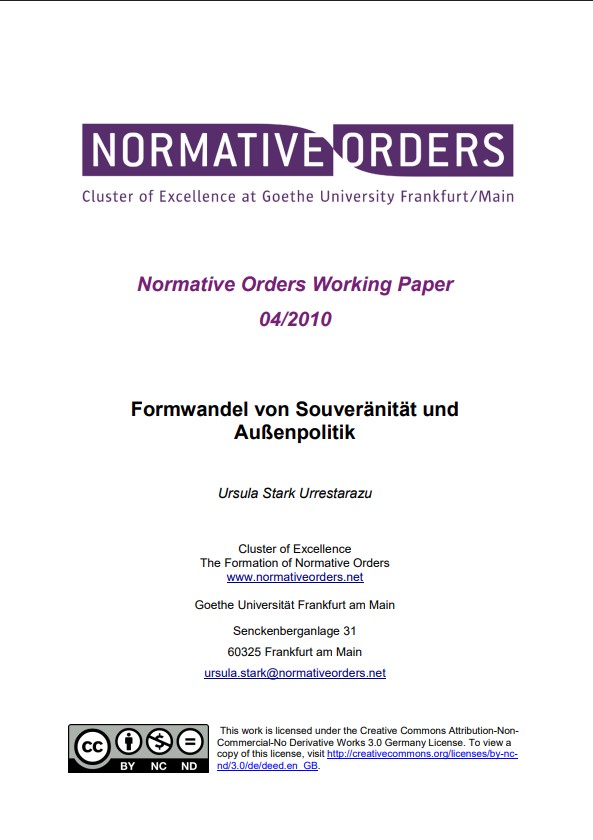Changing forms of sovereignty and foreign policy
The development of the understanding of global order is closely linked to the establishment of what is commonly referred to in international relations as the “Westphalian system of states”. The conclusion of the Peace Treaties of Westphalia in 1648, which were to mark the beginning of an international order in Europe based on legal equality and self-determination, is often seen as a central milestone in the emergence of the specific political practice of “foreign policy”. Its constitutive characteristic is located in particular in the concept of “sovereignty”, an empowering characteristic of political actors to be able to act free from foreign influence in a larger context while establishing internal/external borders. This concept is therefore one of the basic premises expressed in the idea of an “international system” in which “sovereign” actors enter into relationships with other “sovereign” actors – i.e. conduct “foreign policy”. Although the concept of the Westphalian system of states has already been criticized from several disciplinary perspectives, the idea of a system of sovereign nation states appears to be remarkably stable. The Westphalian state model – with its “master concept” of sovereignty – combines the concept of political authority with territoriality and group and thus provides a relevant and analytically handy organizing principle of international relations. Or in Stephen Krasner’s words: “it orders the minds of the policy-makers”.


